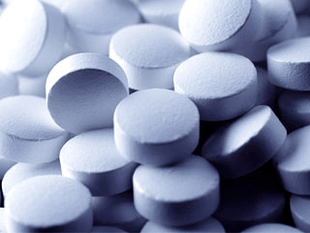
Prostatitis tablets are the basic and main remedy for any form of this disease. They contribute to the faster recovery of the patient, and the spectrum of their action is directed to each of the elements of the development of the disease.
The main thing to remember when choosing drugs for prostatitis is that they should be prescribed by a doctor. He is a qualified specialist who will determine the treatment purely individually, taking into account the interaction of tablets for prostatitis with other drugs that are prescribed to a man, taking into account side effects and the effect of the drug on the whole body ingeneral.
Not only the disease of the prostate gland itself can cause painful sensations and psychological discomfort, but an incorrectly selected drug can cause harm - cause an allergic reaction, impaired reproductive function or cause an insufficient erection in a man, which is one of the symptoms of impotence.
The drugs used for prostatitis are divided into the following main groups, while they are taken in combination:
- Antibacterial drugs.The first choice of a doctor in the treatment of a disease, especially its acute form. Intended to destroy the causative agent of the disease, which is detected on the basis of laboratory analysis of the secretion of the prostate. They must freely penetrate into the tissues of the prostate and cause a high concentration of the substance in it, therefore, the course of antibiotics is at least 4 weeks; for severe pain, antibacterial medications are given through a vein.
- Alpha Blockers.The prostatitis pills in this group are intended for men who have trouble urinating. They relax the smooth muscle fibers of the prostate and bladder, relieve sphincter spasm, improve urine and seminal fluid output, reduce the number of impulses, and reduce pressure on the bladder.
- Muscle relaxants.They have an effect similar to alpha-blockers, but directed to the perineal region, which is constantly in an increased tone during prostatitis. Reduce pressure in the pelvic area, reduce pain.
- Painkillers.Relieve pain in the lower abdomen. The dose should be checked with a doctor.
- Phytotherapeutic drugs.Based on natural medicinal herbs. They reduce the edema of the prostate gland, its inflammation, prevent stagnation, restore the outflow of physiological fluids. Preparations based on pumpkin seeds, creeping palm fruits and sabal are considered popular.
- Hormonal agents.Intended to reduce the level of testosterone, which contributes to the proliferation of prostate tissue, normalizing the general hormonal background.
- Take it easy.Designed for patients who are depressed due to impaired quality of life, including sexuality.
- Vitamins.Essential for the general strengthening of the immune system, weakened both by the disease and by the course of treatment itself.
Essential medicines for prostatitis and BPH
From a medical point of view, there is no best cure for prostatitis, which is obvious, since this or that drug targets both one or more of the causes of the disease, so only oneof the forms of development of the disease:
- In case of an acute bacterial formcaused by bacteria from the Escherichia coli group, antibacterial drugs from the fluoroquinol group are required.
- The chronic bacterial formusually clears up within a few weeks, as antibiotic therapy is not effective for this form.
- The non-bacterial form of prostatitis, even taking into account that no infection was detected in it, continues to be treated with antibiotics, since specialists have identified a decrease in pain syndromes in thepatients.
The best cure for prostatitis will be different for each patient, but there are a number of drugs known from advertisements and most frequently requested in pharmacies that aim to improve urination, affecting the metabolism and microcirculation ofthe prostate. Most of the time they are prescribed for the treatment of chronic prostatitis and benign prostatic hyperplasia.
Drugs for prostate adenoma are primarily androgens that facilitate urination by increasing the functional capacity of the detrusor.
There are many drugs for the treatment of prostatitis, including for the treatment of prostate adenoma, but it should be remembered that such drugs should only be taken as directed by a doctor so that self-medication does not lead to deterioration of health.
























